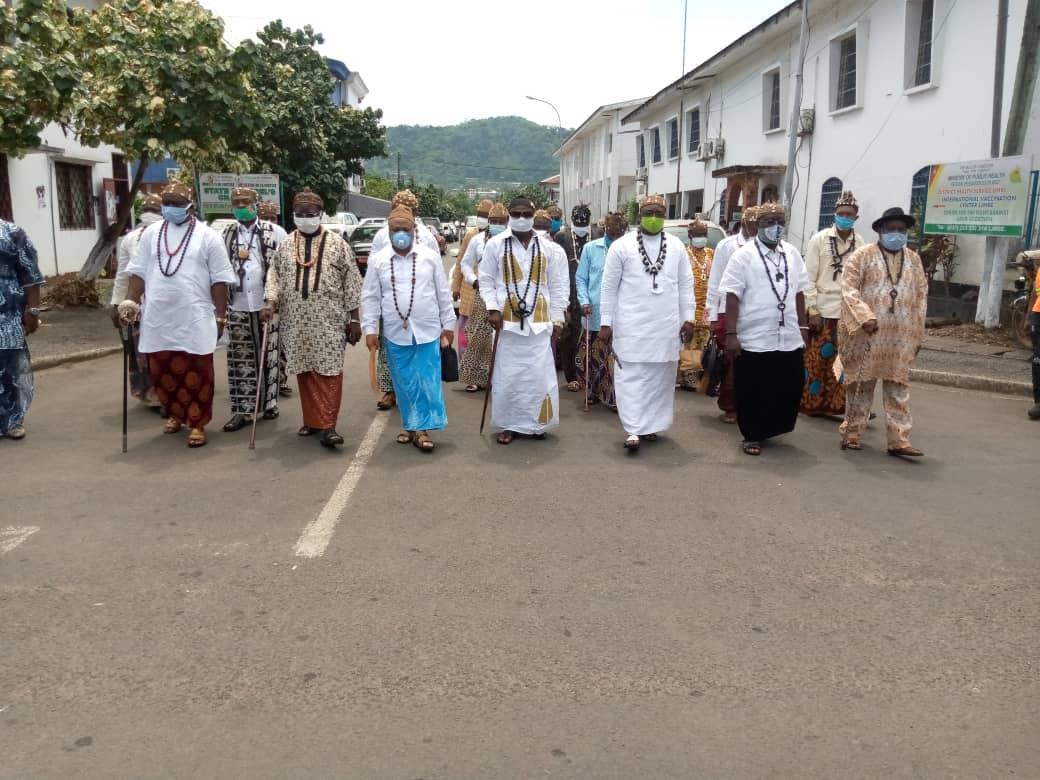Of the three deep seaports in Cameroon, Limbe is the only one that is still to be constructed after several failed promises.
The Limbe Deep Seaport seems to be a tickling spot of the Government, for Anglophones in General, and the Southwest region in particular. When dissenting voices come up against the treatment of projects meant for Anglophone regions of Cameroon, the Government, which seems to have mastered the art of fingering the people to make them have an illusion that they matter, would come up and promise that the Limbe Deep Seaport will be delivered soon.
The several ‘soons’ of the Government have never come to fruition as they are often far-fetched, and most of the time abandoned, or neglected by officials entrusted with different tasks meant to collectively see it through.
On October 29, 2019, the Government appointed a Branch Manager of the Limbe Autonomous Ports and promises were made that the construction of the Limbe Deep Seaport was coming soon. Since then, the people are still waiting for the promise to materialise.
Traditional rulers in Fako Division of the Southwest Region even organised public ceremonies to celebrate and send motions of support to President Biya for listening to them, and for finally granting their long-awaited wish. Since then, nothing has materialised, prompting many to question has been blocking the progress of the promised seaport to Limbe, which if realised, will create several jobs and boost the economy of the country.
In a welcome address at an occasion in October 2019, when the Government appointed a Branch Manager of the Limbe Autonomous Ports, the Limbe City Mayor, Andrew Motanga Monjimba, told the National Ports Authority Board Chair, Gounouko Haounaye, that the population of Limbe “was anxiously waiting for the activities of the Limbe Autonomous Port to take-off.”
Off course, the officials expressed the President’s desire and commitment to attend to, and realise the project for the good of the city and its people. But the people’s hopes are fast waning out, as the Deep Seaport, like many other unfulfilled promises, is still awaited. Many fear that the Limbe Deep Seaport project may, thus, be one of those projects meant to fool the people and give them hopes, whenever they cry out.
Gounouko Haounaye told the Limbe population and officials, that the opening of a branch office in Limbe was the consequence of a Board Decision taken on March 22, 2017, to open NPA branches in Douala, Limbe and Kribi.
City Mayor, Andrew Motanga, who expressed the people’s wish to see the Limbe deep seaport realised, appreciated the NPA for having set up their office in Limbe which, he, like many others, saw as a prelude to the eminent take-off of the construction of the Limbe Deep Seaport.
At the commissioning of the pioneer Branch Manager of the Limbe Ports, Ojongeno Oben Eta, the General Manager of the National Ports Authority in Cameroon, Josue Youmba, promised then that the long-awaited construction of the Limbe Deep Seaport will soon be a reality. “Mr. Branch Manager, as pioneer in this port environment that will, in the nearest future, welcome a deep seaport, a project that is cherished by the Head of State, HE Paul Biya, the port community expects from you, both in the regulation and port activities and in the monitoring of this important project that will soon become a reality,” he said.
Youmba’s statement attracted a thunderous applause from the crowd of Limbe inhabitants who had turned out to witness the installation of the pioneer Branch Manager.
Who Is Stalling Limbe Deep Seaport’s Construction
With the several promises made in relation to the realisation of the Limbe Deep Seaport project, many are beginning to ask whether there are officials in certain offices blocking its implementation or it is just another promise that was never meant to be kept.
Like several projects meant for Anglophone regions of Cameroon, the Limbe Deep Seaport seems to have ended up on the desks of some Government officials, charged with the execution of such projects. Anglophones in Cameroon have of recent decried that projects are hardly brought to their regions, and that those which are promised, are hardly realised due to the lack of political will of the regime, to provide for Anglophones, projects that can better their wellbeing.
